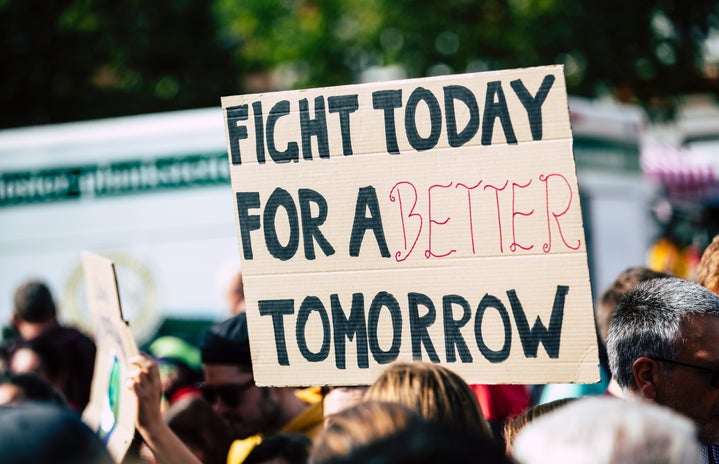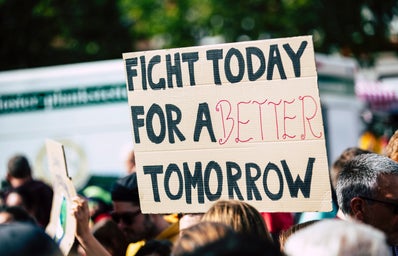At the beginning of my college career, I swore that I knew what I wanted to do: major in political science, run a nonprofit organization that would change the world, and become an activist for gender equality. I lived for the daily discussions that engulfed my class schedule, contributing to daily discussions surrounding the nuances of race and gender. Of course, I had an interest in identity politics as a young black woman living in one of the most politically charged times in United States history. It was almost a given for someone like me to become enamored with activism – advocating for others gave me a sense of purpose, one that made me feel wanted in a world where niches are hard to carve.
But there is an effect that we, as budding activists, seldom talk about.
It was the countless doom scrolling that consumed my media, focusing on the ‘hows’ and ‘whys’ of the -isms that threaten our autonomy as United States citizens. It lied in the forms of online debates, attempting to influence the perceptions of citizens who could not conceptualize my bodies as an individual. The constant anxiety, feeling as if the problems of the world must be solved or else my work represented nothing in the fight for equality. It came in the form of sacrificing my wellbeing to martyr for everyone but myself. My tired eyes morphed into personal trophies, a verification of the twelve-page essays I wrote about dissecting the links between race and gender politics in the country. It lied beyond the name of ‘burnout’, and its name is “I cannot be an activist anymore”.
It felt like a betrayal, a statement arising from the seams of privilege – “this does not affect me, so I refuse to address the problem that we all can see. But I can’t because I refuse to”. A statement stuttered and mimicked within our social spheres and beyond, typically not mentioned by people who belong to the group whose liberation activists advocate for. But I uttered these words. I uttered these words to nurture my needs as an act of self-care. I uttered these words to give space to the individuals who would sacrifice their lives to protect something greater than themselves. I uttered these words to find my true passion as a student, using school for its intended purpose instead of a fantasy career that would not challenge my perception of myself. I uttered these words to reclaim my health.
Not everyone can be an activist, and that is okay. There is a tremendous amount of work among organizing protests, standing at the frontlines surrounded by individuals who protest your existence, giving your all to a war that seems chronic. It is okay to decide that activism is not for you. How can you fight for others if your wellbeing is slipping away through each letter sent to a senator? How can you engage authentically when the class discussion becomes a routine reminder of what it means to be a minority in America, and beyond? This does not mean that the fight for equality has to end with a written slip declaring a major change and accumulation of new extracurriculars. A selfless honor of activism means advocating for not only others, but ourselves to better our health in a system that attempts to steal our sense of being. It is to know when to step back to clear a path for passionate individuals who will show up fully in the fight for equity for all citizens. It is what I had to do to advocate for myself, and I do not regret it.

